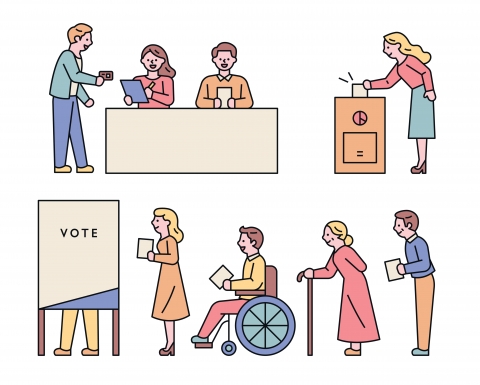The European Economic and Social Committee (EESC) has called on the European Parliament (EP), the Council of the EU and Member States to urgently amend the 1976 Electoral Act in a way that guarantees that all EU citizens with disabilities have a genuine right to vote in the EP elections in 2024.
In its opinion on The need to guarantee real rights for persons with disabilities to vote in European Parliament elections, adopted on 2 December, the EESC said it was asking for the principles of universality, secrecy and directness to be clarified in the text of the Act.
This would put a stop to discrimination against voters with disabilities linked to current rules or arrangements in different Member States, which differ considerably from one country to another. It could also remove legal or technical barriers currently in place across Europe, depriving millions of their voting rights.
The opinion is a follow-up to the EESC’s information report which had found that, due to these barriers, not a single EU country was able to guarantee that elections were fully accessible to all.
The findings of the report, published two months prior to the 2019 EP elections, were later confirmed by the election reports from media and civil society organisations.
“The EESC considers such discrimination to be unacceptable and contrary to the fundamental values of the EU, to the Treaties and to major international legal and political acts,” said Krzysztof Pater, author of both the report and the opinion.
“What we are asking has to do with the principle of equal rights for all. How is it possible that in the 21st century, millions of EU citizens with disabilities cannot enjoy their right to vote and decision-makers do almost nothing to change that? This is a key issue for EU democracy. Above all, this is a matter of human dignity,” Mr Pater stressed.
In the EESC’s view, existing practices that discriminate against EU citizens with disabilities can be quickly removed by amending the Electoral Act in a way that makes it mandatory for EU countries to implement standards that would guarantee that these people have a genuine right to vote.
These standards include adding a statement stipulating that no EU citizen may be deprived of their right to vote in EP elections because of a disability or health condition on the basis of national law.
The standards needed to clarify the principles of directness and secrecy will ensure that all persons with disabilities, regardless of the type of their disability, can vote unassisted and in secret. (ll)
eesc.europa.eu

















